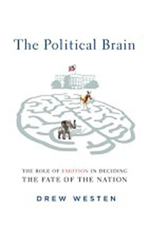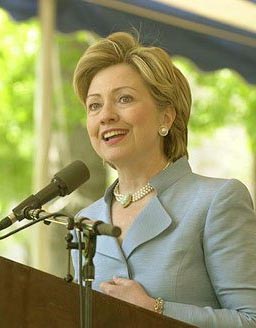|
International
Relations
in the Age of Empire
"You Can't Lump All Terrorists
Together"
- Hillary Clinton Speaks Out
Michael Tomasky asks Hillary Clinton
about Iraq,
the legacy of the Cold War, Mukasey and ceding
executive powers
Guardian
Unlimited, October 23, 2007
[Comment by tamilnation.org Hillary Clinton's remarks are
welcome - and given the culture encouraged by the
present US administration, her remarks are courageous
and opportune.
Hillary Clinton is right to recognise that
terrorism is a tool 'that has
been utilized throughout history to achieve certain
objectives' and she is right to spell out the need to
consider separately the ends that may be sought to be
achieved in each case - and to respond
accordingly.
We can also
empathise with her when she says that the US
"can have an approach that
tries to project power and authority in an
appropriate way that draws on all aspects of American
power, that inspires and
attracts as much as coerces." Said that, we
believe that a principle centered approach which will
inspire and attract may also need to draw a
distinction between violence and terrorism. The two
words are not synonymous and much confusion arises by
conflating the two. All violence is not terrorism and
an US approach which liberates political language
will also help liberate peoples who have taken up
arms as a last resort in their struggle for freedom
from oppressive alien rule.
We believe that the
long term strategic interests of the US, whether in
the Indian Ocean region or elsewhere will benefit by
a foreign policy which 'inspires
and attracts as much as coerces'. If the US
aspires to play a lead role in an emergent multi
lateral world, we believe that that leadership will
not come simply by the display of military might and
economic power. There is a need to defend the very
real values that a people stand for and speak from
the heart to their hearts. We need both mind and heart - neither a
desiccated calculating machine nor a mindless
emotion. It is the marriage of power with principle that will secure
leadership. A leader needs to secure the trust and respect of those whom she seeks to lead
- trust in her integrity and respect for the skills
that she is able to bring to the task of achieving
shared goals. The response
that she will then receive will be overwhelming. This
is true of individuals. It is true of business
organisations. It is also true of
countries.
 See also The Political
Brain: The Role of Emotion in Deciding the Fate of
the Nation See also The Political
Brain: The Role of Emotion in Deciding the Fate of
the Nation
Q. I want to start with some
questions about foreign policy and terrorism. If you
become president you'll enter the White House with far
more power than, say, your husband had. What is your view
of this? And what specific powers might you relinquish as
president, or renegotiate with Congress - for example the
power to declare a US citizen an enemy
combatant?
 Well, I think it
is clear that the power grab undertaken by the
Bush-Cheney administration has gone much further than
any other president and has been sustained for longer.
Other presidents, like Lincoln, have had to take on
extraordinary powers but would later go to the Congress
for either ratification or rejection. But when you take
the view that they're not extraordinary powers, but
they're inherent powers that reside in the office and
therefore you have neither obligation to request
permission nor to ask for ratification, we're in a new
territory here. And I think that I'm gonna have to
review everything they've done because I've been on the
receiving end of that. There were a lot of actions
which they took that were clearly beyond any power the
Congress would have granted or that in my view that was
inherent in the constitution. There were other actions
they've taken which could have obtained congressional
authorization but they deliberately chose not to pursue
it as a matter of principle. Well, I think it
is clear that the power grab undertaken by the
Bush-Cheney administration has gone much further than
any other president and has been sustained for longer.
Other presidents, like Lincoln, have had to take on
extraordinary powers but would later go to the Congress
for either ratification or rejection. But when you take
the view that they're not extraordinary powers, but
they're inherent powers that reside in the office and
therefore you have neither obligation to request
permission nor to ask for ratification, we're in a new
territory here. And I think that I'm gonna have to
review everything they've done because I've been on the
receiving end of that. There were a lot of actions
which they took that were clearly beyond any power the
Congress would have granted or that in my view that was
inherent in the constitution. There were other actions
they've taken which could have obtained congressional
authorization but they deliberately chose not to pursue
it as a matter of principle.
Q. I guess I'm asking, can a
president, once in the White House, actually give up some
of this power in the name of constitutional
principle?
Oh, absolutely, Michael. I mean
that has to be part of the review that I undertake when
I get to the White House, and I intend to do
that.
Q. Interesting. Liberal
intellectuals and foreign policy thinkers have, since the
start of the Iraq war, been engaged in debate about Iraq
and the legacy of Cold War liberalism. Do you think the
Iraq war was within the tradition we associate with
Truman and Acheson?
You know, that's a very hard
question to answer with any certainty or even full
intellectual understanding because we are in a
post-Cold War world, and I think that the argument has
been missing that basic premise. It's hard to take what
was a philosophy with respect to the use and
containment of power during the Cold War and try to
shoehorn it into a post-Cold War context. So I don't
really think there is an easy or satisfying answer to
that. You know, obviously, if you read my article in
the current issue of Foreign Affairs, I think we can
have an approach that tries to project power and
authority in an appropriate way that draws on all
aspects of American power, that inspires and attracts
as much as coerces, if we avoid false choices driven by
ideology and theory. One of the lessons that I think we
all should take out of the last six-and-a-half years is
that ideologically driven foreign policy that is not
rooted in a realistic assessment of the world as we
find it today is not likely to result in any positive
outcome.
Q. Yeah. Do you think that
the terrorists hate us for our freedoms, or do you think
they have specific geopolitical
objectives?
Well, I believe that terrorism is a
tool that has been utilized throughout history to
achieve certain objectives. Some have been ideological,
others territorial. There are personality-driven
terroristic objectives. The bottom line is, you can't
lump all terrorists together. And I think we've got to
do a much better job of clarifying what are the
motivations, the raisons d'�tre of
terrorists. I mean, what the Tamil Tigers are fighting
for in Sri Lanka, or the Basque separatists in Spain,
or the insurgents in al-Anbar province may only be
connected by tactics. They may not share all that much
in terms of what is the philosophical or ideological
underpinning. And I think one of our mistakes has been
painting with such a broad brush, which has not been
particularly helpful in understanding what it is we
were up against when it comes to those who pursue
terrorism for whichever ends they're
seeking.
Q. It sounds like you're
saying it's not particularly useful when Bush and others
say terrorists hate us for our
freedoms?
Well, some do. But is that a
diagnosis? I don't think it's proven to be an effective
one.
Q. Just quickly on Iraq. You
know 67% of the respondents to a Washington Post poll
said either cut off funding or attach it to timetables.
Why is hard for Congress to do something 67% of American
people say they want done?
Well, actually, I support that
position, I have voted against funding, I have voted a
number of times for timelines. But the bottom line is
we don't have enough Republicans who are willing to
depart from the president's policy. And we have a very
narrow majority in the Senate, and until we can
persuade enough Republicans to defeat a threatened
filibuster we can't cut off funding, we can't attach
timelines. I think the House could get a vote to attach
timelines. I don't know whether they could take the
step of cutting off funding, but they might be able to
do it as a result of a series of actions. But in the
Senate, you know, we have a 51-49 majority, and for
most of the year, until Tim Johnson returned, we had a
50-49 majority. And you're not going to see the
Republicans lining up until they're absolutely
convinced that they have no alternative, and that's
what we're trying to convince them of. We've got an
election year coming up. I think we'll continue to try
to push the president, but the political reality is we
don't have the votes.
Q. I want to shift to a
couple of domestic issues. In light of some of Michael
Mukasey's comments Thursday on torture and waterboarding,
will you vote to confirm him?
Well, I'm gonna look at the entire
record of the hearing. His questions in a number of
areas raised issues for me, so I have to look closely
and see what I should do in terms of voting, and I will
be doing that.
Q. What were you most
concerned about?
Well there were a number of issues.
Obviously, I do not believe in as expansive a
definition of executive power, and some of the
questions on the second day about presidential
authority with respect to interrogation also concern
me.
Q. Does his longtime
friendship with Giuliani trouble you at
all?
No.
Q. You know one criticism
among some progressives is that you're an overly cautious
politician. Can you name one issue during your Senate
tenure on which you risked political capital, really
stuck your neck out in behalf of a progressive policy
goal?
Well, I think, you know, voting
against funding. What did we get, 12, 13, 14 votes? A
lot of people who consider themselves very progressive
who voted against authorizing the war in Iraq were not
with me on that vote.
Q. Previously? On domestic
issues?
Well, you know I've made so many
votes, Mike, and I've tried to vote as I thought was
the right thing to do, and if you look at my voting
record as it's evaluated by most of the progressive
organizations that look at voting records, I have a
very, very high percentage of having voted with them,
so I don't quite know what their concern is. You know,
look what I'm doing in the campaign. I'm obviously
running on my plans to change the country, I have very
specific policies that I've rolled out day after day,
I'm zeroing in on what I think should be done to
restore America's leadership in the world and rebuild a
strong and prosperous middle class and reform the
government. And I think the results speak for
themselves. We're getting an enormous amount of support
because people understand that change is just a word if
you don't have the strength and experience to make it
happen.
Q. Last question. Will health
reform come first in your administration before the 2010
midterms or will you start smaller?
A: It will be my highest priority
as soon as I am inaugurated.
|